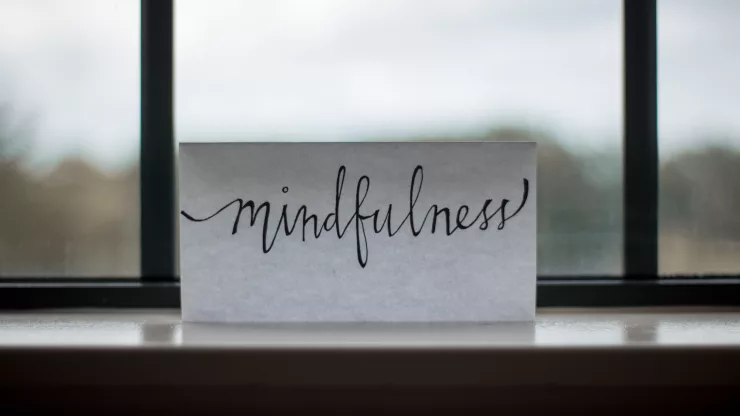In today’s fast-paced world, achieving a work-life balance is more important than ever before. While work is essential, it is equally important to take care of our personal lives to maintain mental wellness.
The importance of work-life balance for mental wellness cannot be overstated.
In this article, we will delve into the meaning of work-life balance and its impact on mental health.
We will also provide tips on how to achieve work-life balance and maintain it.
Jump to Section
Why Work-Life Balance is Crucial for Mental Wellness
Work-life balance refers to the equilibrium between work-related activities and personal life activities. Achieving a work-life balance is important for mental wellness as it helps to reduce stress levels, prevent burnout, and promote overall life satisfaction.
Our brain needs adequate rest and time to recharge to function optimally. Failure to find a balance between work and personal life can lead to mental health issues such as depression, anxiety, and other stress-related disorders.
The Effects of a Poor Work-Life Balance on Mental Health
When work dominates our lives, it can lead to several negative effects on our mental health.
Increased Stress Levels
Work-related stress can lead to increased stress levels and affect overall mental well-being. Stress can manifest as physical symptoms such as headaches, fatigue, and digestive problems.
Chronic stress can also lead to mental exhaustion, which can negatively impact our ability to focus and make decisions.
Burnout
Burnout is a state of emotional, mental, and physical exhaustion caused by prolonged exposure to stress. Burnout can lead to feelings of detachment, cynicism, and decreased satisfaction in life.
Reduced Overall Life Satisfaction
When work dominates our lives, it can lead to reduced overall life satisfaction. We may feel unfulfilled, lacking purpose, and experience negative emotions like guilt, disappointment, and frustration.
What Does Work-Life Balance Mean?
Defining Work-Life Balance
Work-life balance refers to the equilibrium between work-related activities and personal life activities. It involves finding a balance that allows us to achieve both personal and professional goals without compromising our mental health and well-being.
The Different Aspects of Work-Life Balance
Work
Work-related activities include our job or career-related activities. It involves finding a balance between work responsibilities, deadlines, and targets.
Personal Life
Personal life activities include our daily routines, hobbies, social activities, and self-care.
Family Life
Family life activities involve spending time with our families, taking care of our loved ones, and managing household responsibilities.
Social Life
Social life activities involve interacting with others, building social connections, and engaging in social activities that we enjoy.
How Work-Life Balance Affects Mental Wellness
The Benefits of a Balanced Life
Achieving a work-life balance has many benefits for mental wellness, including:
Physical Health Benefits
A balanced life helps to reduce physical health problems such as high blood pressure, heart disease, and obesity.
Psychological Health Benefits
A balanced life helps to reduce mental health problems such as depression, anxiety, and other stress-related disorders.
Reduced Stress Levels
A balanced life helps to reduce stress levels and improve overall mental well-being.
Increased Productivity and Motivation
A balanced life helps to increase productivity and motivation, leading to improved work performance.
Improved Relationships
A balanced life helps to improve relationships with loved ones, colleagues, and friends.
Better Overall Quality of Life
A balanced life helps to improve overall quality of life by providing a sense of purpose, fulfillment, and satisfaction.
Tips for Achieving Work-Life Balance
Achieving work-life balance is not easy, but it is achievable. Here are some tips to help you find balance:
Time Management Strategies
Effective time management can help you achieve a work-life balance. This involves prioritizing tasks and setting realistic deadlines.
Setting Boundaries
Setting boundaries between work and personal life helps to create a clear separation, preventing work from encroaching into personal life.
Prioritizing Self-Care
Prioritizing self-care activities such as exercise, meditation, and relaxation helps to reduce stress levels and improve overall mental well-being.
Learning to Delegate
Learning to delegate tasks to others helps to reduce workload and prevent burnout.
Creating a Support System
Creating a strong support system of friends, family, and colleagues can help to provide emotional support and reduce feelings of isolation.
Staying Organized and Avoiding Procrastination
Staying organized and avoiding procrastination can help to manage workload and prevent stress levels from escalating.
The Impact of Work-Life Balance on Mental Health Statistics
Research has shown that achieving work-life balance has significant benefits for mental health. Here are some statistics that highlight the importance of work-life balance for mental wellness:
| Statistics | Percentage |
|---|---|
| Employees with high work-life balance satisfaction report lower levels of stress | 68% |
| Employees who maintain a good work-life balance are more satisfied with their jobs | 78% |
| Working long hours is linked to an increased risk of depression | 51% |
| Work-life balance is the second most important factor for job satisfaction | 60% |
Striving for Work-Life Balance to Improve Mental Wellness
Striving for work-life balance is crucial for achieving and maintaining good mental health. It involves finding a balance between work-related activities and personal life activities, prioritizing self-care, and creating a support system.
Achieving work-life balance has many benefits, including reduced stress levels, improved overall mental well-being, and better relationships. By striving for work-life balance, we can improve our mental wellness and lead a fulfilling life.
FAQ
What are the benefits of achieving work-life balance?
Achieving work-life balance has many benefits, including reduced stress levels, improved overall mental well-being, and better relationships.
How can I achieve work-life balance?
You can achieve work-life balance by prioritizing self-care, setting boundaries, delegating tasks, and creating a strong support system.
What are the consequences of a poor work-life balance?
A poor work-life balance can lead to increased stress levels, burnout, and reduced overall life satisfaction.
How does work-life balance affect mental wellness?
Work-life balance has a significant impact on mental wellness. Achieving work-life balance reduces stress levels, prevents burnout, and promotes overall life satisfaction.

With a deep passion for personal development, Ben has dedicated his career to inspiring and guiding others on their journey towards self-improvement.
His love for learning and sharing knowledge about personal growth strategies, mindfulness, and goal-setting principles has led him to create My Virtual Life Coach.
Contact Ben at [email protected] for assistance.




